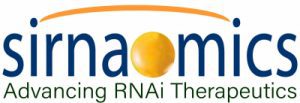
United Therapeutics Announces Top Line Data From the EXPEDITE Study of Remodulin Induction Prior to Orenitram Therapy
A short induction of Remodulin® (treprostinil) injection allowed study subjects to reach double the typical doses of Orenitram® (treprostinil) extended-release tablets than patients who did not have a Remodulin induction
SILVER SPRING, Md. & RESEARCH TRIANGLE PARK, N.C.–(BUSINESS WIRE)–United Therapeutics Corporation (Nasdaq: UTHR), a public benefit corporation, today announced that a preliminary analysis of the EXPEDITE study in patients suffering from World Health Organization (WHO) Group 1 pulmonary arterial hypertension (PAH)demonstrated that 79% of patients in the study achieved an Orenitram (treprostinil) extended-release tablet dose of at least 4 mg three times daily (TID), for a 12 mg total daily dose at 16 weeks, after an up to eight week induction treatment period with Remodulin (treprostinil) injection. Detailed study results will be made available through scientific disclosure at upcoming medical conferences and in peer-reviewed publications.
“The EXPEDITE trial represents a framework to get carefully selected PAH patients on clinically impactful oral doses of a critical class of medication safely and so much more timely,” said John Kingrey, M.D., director of the Pulmonary Hypertension center at INTEGRIS Baptist Medical Center. “I’m so pleased with how my patients did with this approach, as it really did expedite (pun intended!) their path to achieving increased prostacyclin dosages.”
“We’re delighted with the preliminary results from the EXPEDITE study, which provided patients a way to reach efficacious doses in a shorter period of time without having to commit to long-term pump therapy,” said Meredith Broderick, Pharm.D., J.D., Senior Director of Global Medical Affairs at United Therapeutics. “Along with our other phase 4 studies, EXPEDITE demonstrates our commitment to optimize available treatment options in order to help PAH patients better manage their disease.”
In EXPEDITE, patients enrolled in the study achieved a mean total daily Orenitram dose of 16.4 mg at 16 weeks with 79% of study subjects reaching the study’s primary endpoint of a 12 mg total daily dose. Secondary outcome measures included six-minute walk distance (6MWD); the cardiac biomarker N-terminal pro-brain natriuretic peptide (NT-proBNP); WHO functional classification; echocardiography; risk scores; and health related quality of life, as assessed using the emPHasis-10 questionnaire.
A previous real world dosing analysis showed an average Orenitram dose of approximately 6 mg daily after 16 weeks without the induction protocol studied by the EXPEDITE study1. In addition, scientific literature shows that higher doses of treprostinil have been associated with better outcomes for patients with PAH2.
Treatment with Orenitram, three times daily, was well tolerated and the safety profile was consistent with previous Orenitram studies in PAH. In the study, several well-known treprostinil adverse events such as headache, nausea, and vomiting tended to improve after transition to Orenitram from Remodulin.
About the EXPEDITE study
EXPEDITE was a phase 4, multicenter, open-label 16-week study of Remodulin induction followed by oral Orenitram optimization in patients with PAH. Enrollment into the study was completed in May 2022 with a total of 36 patients enrolled. Twenty-nine patients completed the study. Once enrolled, patients were initiated on intravenous or subcutaneous Remodulin in an inpatient or outpatient setting and titrated to a minimum dose of 20 ng/kg/min over two to eight weeks. Patients were then transitioned to Orenitram over one to 21 days in the inpatient or outpatient setting. The primary endpoint was to evaluate the percentage of subjects achieving an Orenitram dose of 4 mg three times daily (TID) – or a total daily dose of 12 mg – or higher at week 16.
Secondary objectives of the study were to assess the effect of Orenitram treatment at 16 weeks after induction therapy with Remodulin on the following parameters:
- 6MWD
- Borg dyspnea score
- WHO functional class
- Serum NT-proBNP
- Echocardiogram
- PAH symptom score
- Health-related quality of life as determined by the emPHasis-10 questionnaire
- Treatment Satisfaction Questionnaire for Medication (TSQM) scores
- Percentage of subjects that improve in each of the following individual four clinical parameters at week 16 (6MWD, NT-proBNP, WHO FC, right atrial area) to a lower risk stratum, as defined by the 2015 European Society of Cardiology guidelines, compared to baseline
- Percentage of subjects that meet each of the following four individual clinical parameters at week 16 in the low risk category, as defined by 2015 European Society of Cardiology guidelines: 6MWD > 440 meters, serum NT-proBNP < 300 ng/L, WHO FC I or II, and right atrial area < 18 cm2
- Percentage of subjects that either achieve an Orenitram dose of 4 mg TID (or a total daily dose of 12 mg) or higher at week 16 (or a dose of 0.057 mg/kg TID [or a total daily dose of 0.171 mg/kg] or greater for subjects <70 kg) or the percentage of subjects that achieve an Orenitram dose ≥2 mg TID and <4 mg TID (or a total daily dose ≥6 mg and <12 mg) at week 16, with at least 2 of the following 3 clinical parameters at week 16: 6MWD increase by ≥10% or ≥30 meters from Baseline, serum NT-proBNP reduction >30% from Baseline, or WHO FC I or II
- The percentage of subjects that successfully transitioned to Orenitram at any dose and were maintained on therapy at week 16
- Safety and tolerability as measured by adverse events; an AE Bothersome Survey; clinical laboratory parameters; and vital signs
Additional exploratory objectives of the study evaluated changes in biomarkers and pharmacogenomics from this study.
Contacts
Dewey Steadman at (202) 919-4097
Email: [email protected]
- About the Author
- Latest Posts
BioBuzz is a community led, experience focused, biotech and life sciences media and events company. BioBuzz highlights regional breaking news, industry professionals, jobs, events, and resources for business and career growth. Their weekly newsletter is subscribed to by thousands in the BioHealth Capital Region and Greater Philadelphia as the go-to for industry updates.





